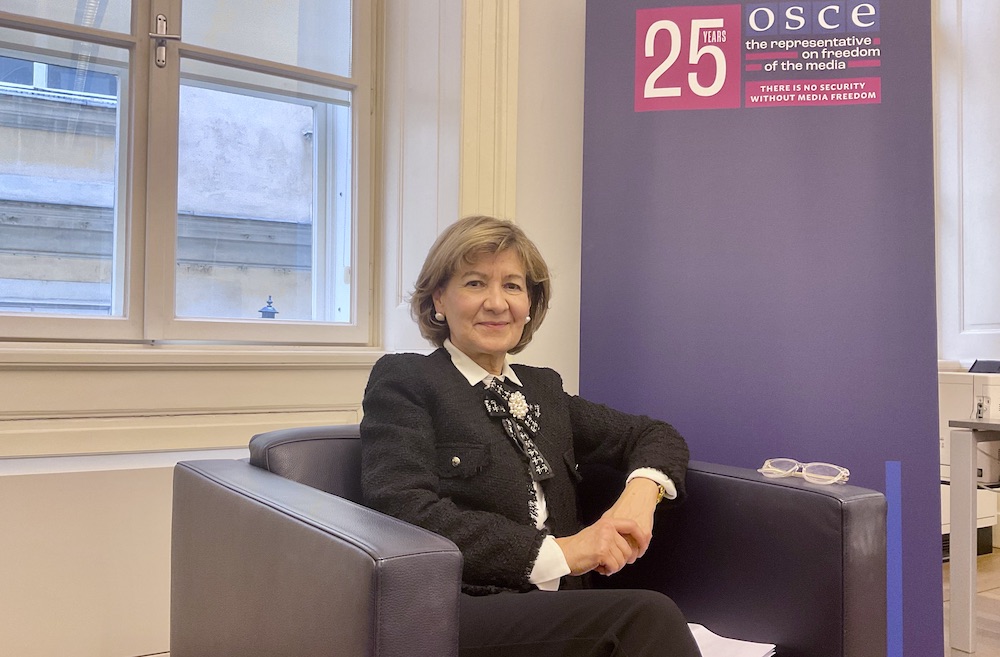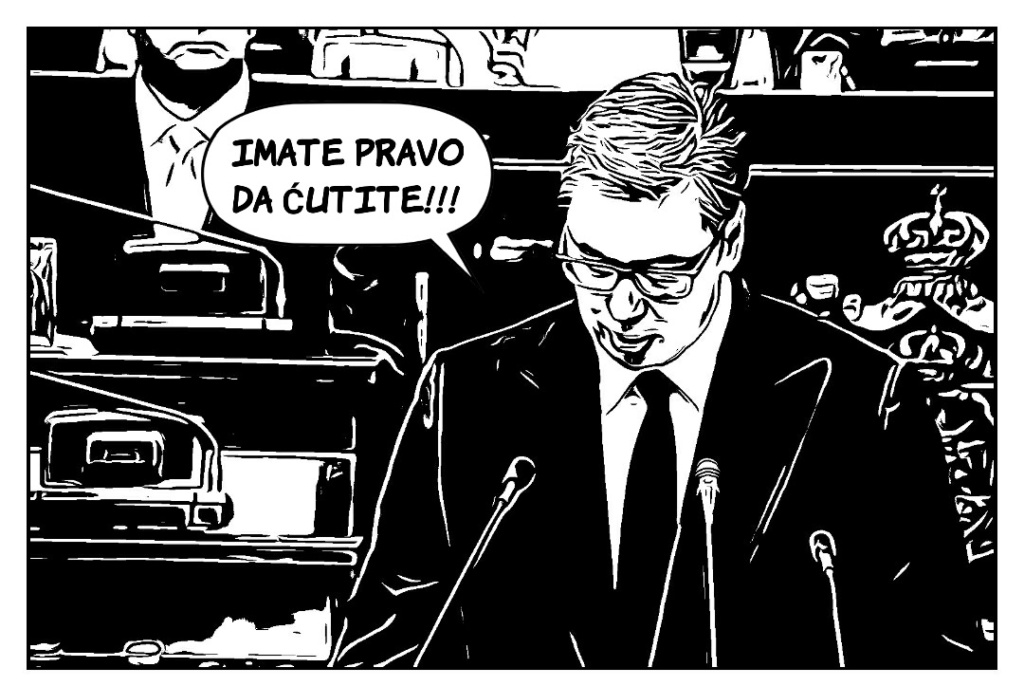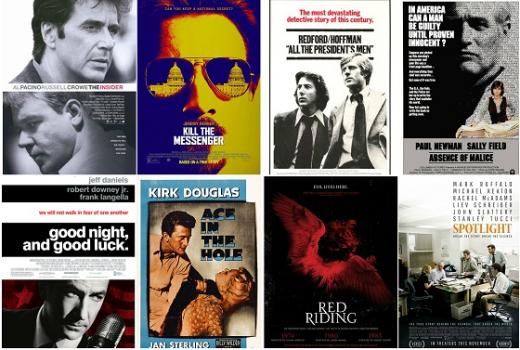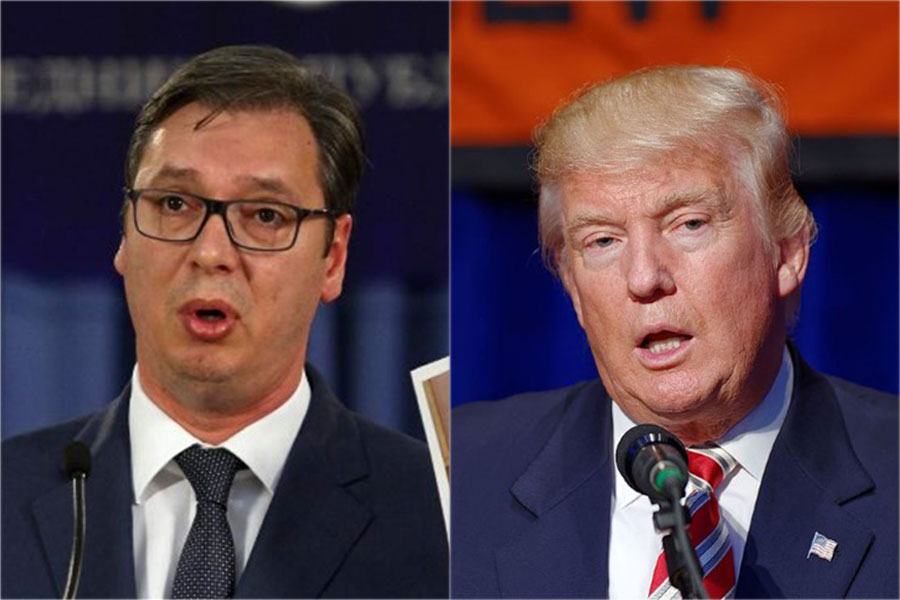
Teresa Ribeiro (photo: Cenzolovka / Jelena L. Petković)
Cenzolovka: It will be 24 years in April since journalist Slavko Ćuruvija was killed. The court process began eight years ago. How do you view the fact that it took 16 years for the indictment to be written and the trial to begin, and then another eight years for the trial to reach its final stage in front of the Court of Appeal?
Ribeiro: The time of justice is sometimes different from our perception of time in other dimensions of our lives. Still, justice has to be swift and it has to be really effective, otherwise it will sow mistrust and lack of trust in institutions.
Especially in a case like this one – it will send the wrong message that impunity is what will prevail in the end. It is very important to have effective justice, swift justice and to be sure that all perpetrators and all masterminds are punished, so that we can break the circle of impunity.
Cenzolovka: Do you think that judges can judge independently and impartially in this case – when part of the Serbian secret service has shown the power to obstruct investigations for the entire 16 years and to apparently intimidate witnesses, destroy evidence…?
Ribeiro: I am not in a position to make a judgement on that, I do not know the system in such detail, but I hope that this will be the case. This trial will definitely be a strong test for the system. That is also an additional reason why I was referring to the need to ensure effective justice – to avoid to sow distrust and discrediting institutions and of the system, in this case – the judicial system. I cannot comment on the details of the judicial system in Serbia for obvious reasons … However, I hope that this will be a landmark decision.
When the rule of law fails, democracy is questioned
Cenzolovka: What are your expectations? What consequences will this verdict have – not only in case of the murder of Slavko Ćuruvija, but also for the situation in the judiciary and democracy in our country?
Ribeiro: With such a big case, on which Serbian society has focused its attention, we need to ensure that it will go well in terms of justice. If not, distrust regarding the entire judicial system and institutions definitely can happen. The rule of law is strong support for democracy – when it fails, it’s democracy that is at stake. That is why it is very important to convey the right messages.
Cenzolovka: The accused for the murder of Ćuruvija, Miroslav Kurak, is at large. It was revealed that he was in Africa at the time the indictment was brought. In your opinion, what are the consequences for the credibility of the judicial system if the person suspected of being the direct perpetrator, the murderer of a journalist, is not brought to justice?
Ribeiro: I do not know the details, I do not know if everything that should have been done was really done, but in cases like this all necessary efforts to be sure that the perpetrators are brought to justice are needed. That is very important – we have to do whatever it takes to bring perpetrators to justice, to be sure that there will be no impunity.
Even though I do not know all details, in such situations all efforts should be taken to ensure that justice prevails in the end.
Political will is key
Cenzolovka: If criminals are punished symbolically or their sentences are lifted, it will show that crimes against journalists in Serbia go unpunished. Can it also encourage those who want to disable journalists from doing their work, even in the most brutal way?
Ribeiro: Killing of a journalist is an extreme case and the punishment should be proportional, of course. We have to be sure that it is not just a symbolic justice that prevails, but that the punishment is proportional to the seriousness of the crime. It is very important to ensure that, first of all, the judiciary is independent, that it is able to provide justice and that the final result is a proportional punishment.
It is not a revenge tool but a proportional punishment that takes into account the seriousness of a crime like this one – and that is the killing of a journalist. I cannot comment on the efforts developed by the different governments in Serbia or the entire judicial system. It is impossible for me to assess that.
Cenzolovka: In addition to the murder of Slavko Ćuruvija, there were several other cases of extreme violence against journalists. There is still no indictment for the murder of journalist Milan Pantić dating from 2001, although there are clear indications that the crime is connected to the state and the privatization of a factory. The circumstances of the death of journalist Dada Vujasinović have not yet been clarified. No one has been convicted of the attempted murder of journalist Dejan Anastasijević by the planting of a bomb in the window of his apartment. The trial for burning the house of journalist Milan Jovanović has entered its fifth year and there is no end in sight. What does this say about the attitude of the Serbian state and the criminal justice system towards journalists?
Ribeiro: All these cases are very worrying, they have to be fully investigated, and we need to be assured that justice will be effective and provided to the ones who suffered and for their families. That is very clear.
Yes, you still have all those cases in Serbia, but despite that – and when I say this I am not trying to minimize the seriousness of the cases that need to be investigated – I saw some good steps taken by the Government (of Serbia). But – is it enough, that is the question. Why is it not enough, why is it not working as fast as it should, that is also a question.
We have initiatives such as the Commission for the Investigation of Murders of Journalists, we have the Working Group for the Safety and Protection of Journalists of the Government (Serbia), the Permanent Working Group for the Safety of Journalists – many initiatives, they are very positive, but they need be effective, which means we need to be sure that behind and beyond those initiatives the political will is there.
If there is no political will, you can create a very interesting choreography, but if you are not really investing in having results – it will not work. We need concerted actions, good initiatives and political will. Without all these three elements – it will not work.
Also, I was in Serbia, I had a lot of meetings with the authorities at different levels, I was reassured that there is a strong political commitment regarding the investigation of all these cases and for the safety and protection of journalists.
My job is to follow closely what is happening, not only in Serbia, because unfortunately the safety of journalists is a problem throughout the whole OSCE region. Also, to monitor whether there is
progress when it comes to initiatives adopted by the participating states in various forms and models. However, the most important thing, of course is – the political will.
WE NEED THE SCRUTINY BY JOURNALISTS, PROPAGANDA IS TOXIC
Cenzolovka: Is democracy even possible in a country where critical journalists are persecuted or killed, and propaganda and disinformation are glorified?
Ribeiro: No, it is not possible. We need scrutiny by journalists. On behalf of all these crimes, because of the cases that are before the court, where conflicts and wars are possible precisely because we have shut down the space for media freedoms, for scrutiny, for investigative journalism.
Instead, we are filling that space with propaganda. It is a toxic combination and it is completely undermining democracy. Scrutiny is key in our societies, while propaganda is very toxic.
We protect journalists because we protect democracy
Cenzolovka: Associations of journalists are constantly warning of threats and physical violence against journalists in Serbia. Are you familiar with the statistics? If so, what do they tell you about the state of investigative and critical journalism in Serbia?
Ribeiro: Yes, I am. It is a really good initiative to have a database and register all cases of attacks. I guess the database is public. Maybe you have to be very loud regarding what is in the database and make some advocacy and emphasize the seriousness of the data that the journalists’ associations have collected. To explain to the citizens why this is a serious thing for a healthy democracy and the future of a functioning democracy, which is, I am sure, the aspiration of the citizens of Serbia.
Cenzolovka: But when you look at these data, do they tell you that something is wrong?
Ribeiro: The situation really deserves attention. It is up to the authorities to pay attention and ensure that the situation is improved. We now have a project for the safety of journalists and the idea is to collect the best practices, provide guidance and recommendations for participating states, for them to ensure that they will protect journalists properly. This is in line with their commitments regarding the OSCE and the protection of journalists.
In 2018, the OSCE Ministerial Council adopted the Decision on the Safety of Journalists. It is now time. Unfortunately, the overall situation in the OSCE region is not improving, but it has to. It is a serious political commitment, it was approved by consensus, and they have to ensure that it is implemented, and that journalists are protected.
Cenzolovka: Do you have any concrete data on the fulfillment of obligations from that Decision on the Safety of Journalists?
Ribeiro: We do not have any, but according to our monitoring in the 57 countries, we know that the situation is not a good one. This is very much linked with the backsliding of democracy and media freedoms. We are protecting journalists because we want to protect democracy. If we want to protect democracy, we need to protect journalists. Otherwise, we cannot have a healthy and functioning democracy.
Cenzolovka: Journalists have been killed in several EU Member States in recent years. How did EU countries react in these cases? Will the murders of journalists in Slovakia, Malta, and the Netherlands be fully resolved?
Ribeiro: Every murder that goes unsolved is a terrible message that is conveyed throughout the region, and you are absolutely right about that. It is not just a message that is sent to the country itself, it is a message that is spread – if they do not care about journalists, why should we care? Such a message amplifies the problem. Any situation that is not resolved amplifies the problem of journalists and cases of attacks against journalists.
You mentioned cases in the EU. With all OSCE participating states, not only the EU members, I’m insisting that all efforts should be mobilized to solve these cases quickly. Sometimes it is very slow, sometimes it is very complicated – that is why I started by saying that the time of justice is a bit different from the time in other areas of our community life.
But, we cannot have these kinds of cases dragging in the courts, investigations without any development and without paying a high price for those who commit such crimes.
Cenzolovka: What does the OSCE recommend when it comes to impunity for crimes against journalists? What are the recommendations to the state, and what are the recommendations to journalists?
Ribeiro: My strongest recommendation is that we cannot allow impunity to be the rule instead of justice. That is not acceptable. We need to break the vicious cycle of crime and impunity because it is deeply damaging to our societies and our democracies.








 Snaga dobre priče: O mitologiji medija
Snaga dobre priče: O mitologiji medija Filmovi o novinarima i za novinare
Filmovi o novinarima i za novinare Vučić i Tramp: Netrpeljivost prema medijima i podrugljivo odbacivanje drugačijeg mišljenja
Vučić i Tramp: Netrpeljivost prema medijima i podrugljivo odbacivanje drugačijeg mišljenja
Ostavljanje komentara je privremeno obustavljeno iz tehničkih razloga. Hvala na razumevanju.